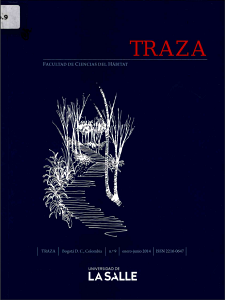Abstract
Economic growth is a requirement for successful development; however, societies overcome material issues in order for their members to improve on the achievements of their ancestors, as well as to succeed in living and to excel. The late 20th century and early 21st century reveals the wealth of a few amid the excitement of the neoliberal model, on one hand, and just how many survive in subhuman conditions, on the other. Economic freedom does not appear to be enough for developing countries to achieve the welfare indicators of leading nations and, in addition, they must face the depletion of natural resources so unscrupulously spent by such nations. In light of this situation, the comprehensive and sustainable human development (DHIS, for its initials in Spanish) founding proposal by La Salle University is concisely presented in order to address the multidisciplinary reflection of its academic community and to build relevant responses for a society that demands the consolidation of development based on the human being as the reason for its actions.Downloads
Download data is not yet available.



